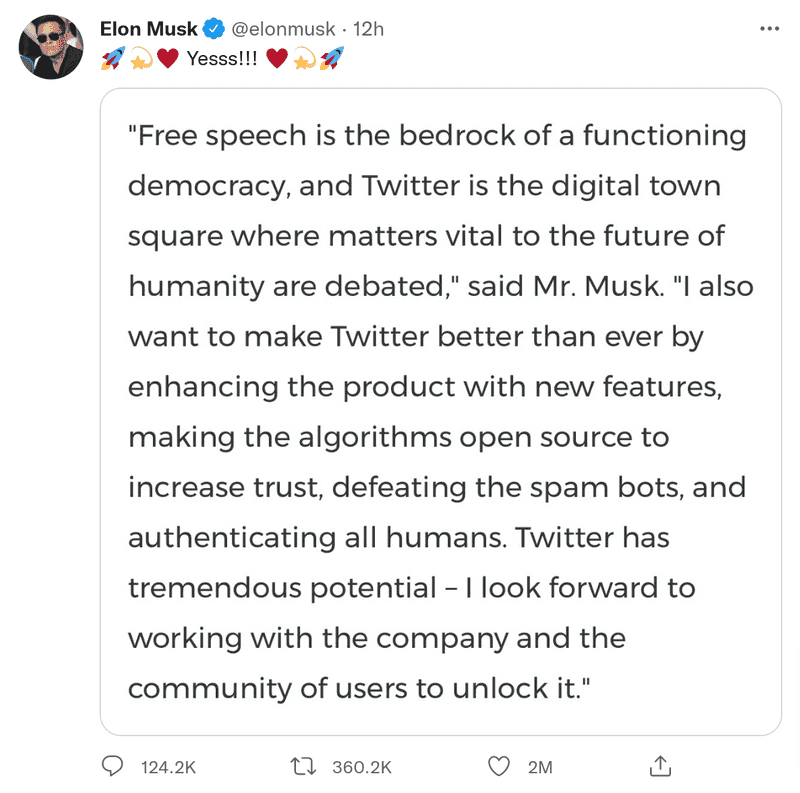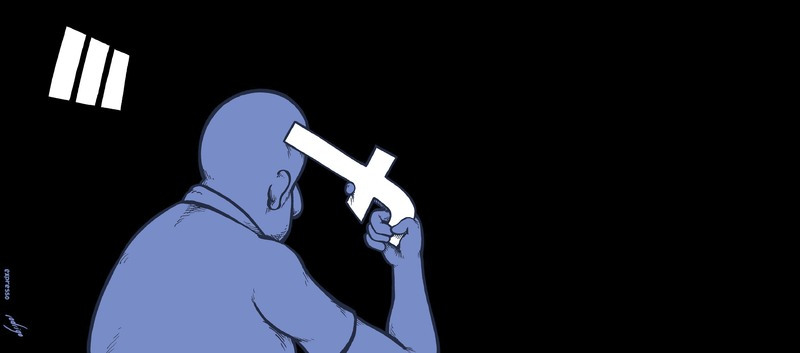Words and meaning are two different things
Sometimes, things that seem unproblematic and obvious don’t bear much scrutiny. Let’s take a popular case in point. Elon Musk, you may have heard, is buying Twitter. He tweeted the following of his intentions for the platform:

There is so much to unpack here. I almost want to go line by line. But instead, let’s zoom out a moment and just think about what’s happening here. The world’s richest man is buying a platform which has been known to have had an effect on democratic elections in at least two major western democracies. So he is absolutely right when he calls it a “digital town square where matters vital to the future of humanity are debated”. More than that, though, it’s a giant memetic influence machine which will no doubt help decide who will become next President of the USA.
Twitter isn’t “the” town square, however, in two senses. First, town squares aren’t usually privately-owned. They’re public spaces, owned by the people. Second, although it has a lot of users, Twitter doesn’t even have as many as Pinterest, never mind Instagram or Facebook. Also, worldwide, people use on average over seven different social platforms on average.
But, hang on, it’s a good thing that Musk’s is aiming to make Twitter better by “open source the algorithms to increase trust, defeating the spam bots, and authenticating all humans,” right? Well, perhaps not. Although I appreciate the sentiment, just because something can be inspected doesn’t mean it can be understood.
However, my main issue is with the idea that everything would be OK if we got rid of spam bots and ensured that everyone was in some way verified. Although it seems like common sense that the use of real names leads to civility, this has proved to be incorrect. It’s actually my experience on the internet as well. I’ve had some of the best interactions with people who I don’t know the real names of, nor where they’re located.
Someone sent me a link to counter.social which is a reductio ad absurdum of what Twitter could turn into. It claims: “No Trolls. No Abuse. No Ads. No Fake News. No Foreign Influence Ops.” Good luck with that. Again, although it sounds like something that social media users would want, it’s a thinly-veiled signpost to authoritarianism.
The answer to the problem of how to do online democracy is citizen education together with strengthening democratic institutions. It’s not allowing a billionaire who’s had some success buying companies before to parachute himself in to ‘fix’ things. Thank goodness I’ve spent the last five years on the Fediverse and deleted my Twitter account around six months ago…

